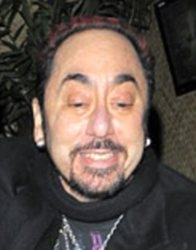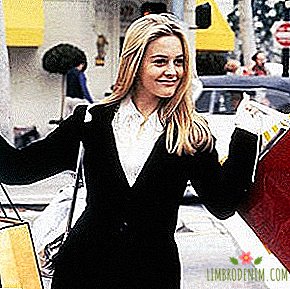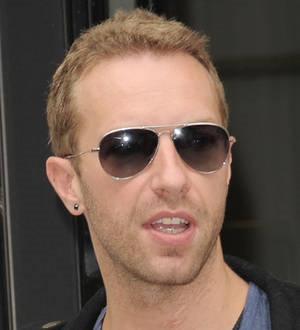Biochemist Svetlana Bozrova about favorite books
IN BACKGROUND "BOOK SHELF" we ask journalists, writers, scholars, curators, and other heroines about their literary preferences and publications, which occupy an important place in their bookcase. Today, biochemist-immunologist and Svetlana Bozrova, a biochemist-immunologist and research associate at the laboratory of nanobioengineering of the Moscow Engineering Physics Institute, shares her favorite books.

 Almost from birth, the best evening entertainment was my mother's reading out loud. Often I forced my mother or sister to re-read the same thing, one of my favorite fairy tales was Bazhov's Stone Flower - I still fall asleep, sometimes I imagine this flower. The Scarlet Flower and The Little Humpbacked Horse were fascinating and now fascinate me with their incredible, as if fiery magic.
Almost from birth, the best evening entertainment was my mother's reading out loud. Often I forced my mother or sister to re-read the same thing, one of my favorite fairy tales was Bazhov's Stone Flower - I still fall asleep, sometimes I imagine this flower. The Scarlet Flower and The Little Humpbacked Horse were fascinating and now fascinate me with their incredible, as if fiery magic.
I clearly remember the moment I discovered at eight, that I enjoy the book. It was Volkov's “The Wizard of the Emerald City” - and since then I have read everything that happened in our home: standard adventures for a child, stories about animals, and novels for children. I literally lived in an imaginary book world and even built all the games with my friends according to the stories of my favorite books.
As a teenager I entered a special school with an unusual program: at 14-15 we read the Golden Ass by Apuleius, Don Quixote in the original and a lot of other literature that is not usually read at this age. Then I realized that reading could also be a challenge: it was difficult for me, but what a pleasure I was getting at the next peak. For a long time, Salinger with his “Catcher in the Rye” and Kerouac with “On the Road” and “Maggie Cassidy” became my favorite authors. As a teenager, I saw in them a dream of the future, alluring freedom, I felt the atmosphere of blues and nightly summer roads. But, although I still love Salinger a lot and I think that this book played an important role in my development, I changed my attitude towards Kerouac. Now, in my opinion, his books describe the deepest emptiness inside, the throwing of the soul, leading not to its rebirth, but to its disappearance into nowhere.
The university had a difficult period for free reading: the load on the biofac was so strong that I could only read professional literature. To my shame, in five years of study I read ten books from the power of books - and now I cannot remember which ones. It was very difficult to teach yourself to read anew - how to learn to walk again in the literary world. I quickly threw out many books: nothing fascinated me the way I did in childhood and adolescence. The transitional book was Jonathan Safran Foer’s “Terribly Loud and Extremely Close”, which probably brought me back to literary life. It was beautifully printed, and it was especially pleasant to hold it in my hands - it did not allow me to postpone it in the first few minutes, and, being carried away, I could not tear myself away from it. I have the strongest impression of this book from the illustrations, not from the text. Many probably know the famous frame of a man who jumped on September 11 from one of the twin towers of a man. In the book, he raskadrovan in the opposite direction - so that when scrolling through the pages with a series of these photos, it seems that he does not fall down, but rises up.
Reading for me is always going to another world, like a dream: it can be pleasant, it can be scary and hard, but this experience is partly other-worldly. Now the choice of a book every time becomes difficult: the feeling that I read little and do not have time for myself in my desires, almost never leaves me. I have a beautiful e-book that helps me organize reading: when you can see how much is left to read, the feeling that I don’t have time, lets go a little. And it also allows me not to buy paper books that I have no place to put: I try to bypass the bookstores, because I know that the worst can happen.

Umberto Eco
"Baudolino"
All Eco books I appreciate for layering. Having passed a test threshold of one hundred pages, everyone will find his own value for himself: this is an exciting literary story, and a deep knowledge of history, and intricate interweaving of fiction and what is actually happening. In Baudolino, it is incredibly fascinating to follow how skillfully the author leads the reader from the real historical world of the Middle Ages into the world of fantasy, the boundaries between which are utterly erased.
Pedro Almodovar
"Patti Dyfusa and other texts"
She took up the book because of its cover, and also because it was written by one of my favorite filmmakers. She radically turned my world: I was a candy girl and a sophomore at Moscow State University and at first such frank dialogues shocked me at first. But I quickly plunged into Almodovar’s prose: this book has greatly changed my attitude towards people in general. Many believe that women who sell themselves are the lowest kind of people, garbage. At least, unfortunately, I had this opinion before. Almodovar reveals the world of Patti, her experiences, goals and thoughts. Albeit very different from my own, but not deprived of their own beauty and charm. After this book, prostituted women in my eyes ceased to be things, they acquired faces and their stories.
Vera Bryantseva
"The childhood and youth of Sergei Rachmaninoff"
My sister threw this book to me, knowing my love for music. At first I grimaced (I don’t really like biographies of unfamiliar authors), and then I decided to give in and read. It turned out in Tolstoyan beautiful, very lively story about the formation of Rachmaninoff. Most of all in the book I remember the episode about the passing of the harmony exam by Rachmaninov. The subject was complex, and Sergei was obviously not interested. However, the two did not allow him to continue studying at the conservatory, and this was absolutely inconceivable for him. For several days he managed to prepare so well that he got almost excellent with a plus, despite the fact that his colleague Scriabin, who also disliked harmony, received a triplicate.
It's funny to realize that great composers also got marks and worried about them. And that one great competed with another great. The image of Rachmaninov after reading is controversial: not very stubborn in learning, he gained his passion in music. At the same time, there was nothing demonic about him, as, for example, in Paganini or Salieri — a kind, light, deeply sympathetic person.
Andrew Solomon
"Demon Midday. Anatomy of Depression"
I would call this book a desktop one for anyone who has experienced mental illness. At one time I was fighting with one of them, and this book was like a breath of air for me. It helps to realize that you are not alone and that your struggle is not a war with dark spirits. The book covers all aspects of depression: each chapter - a description of one of these aspects, for example, "Treatment" or "Breakdowns". For me, the most important discovery turned out to be that one must accept his illness, otherwise it cannot be defeated. Do not accept, namely accept. And to be ready for the fact that she can return, but now not as something terrible and carrying unbearable suffering, but as an old acquaintance with a difficult character, with whom, however, you have already learned to communicate.
Kirill Moshkov
"Blues. Introduction to the story"
Before reading this book, I had favorite blues musicians - nothing exotic, it's Ray Charles and Bessie Smith. It was incredibly interesting to learn about their ups and downs of inspiration, the years at the bottom and the heights of glory. From the book there is a feeling as if I had been in the States of the twentieth century and walked through the bars, where charismatic singers and singers talk about inescapable longing, fate and the most personal experiences. It is interesting that in the book the author does not bypass the pragmatic side of music - producers and recording studios. Thus, you learn not only the details of private biographies, but also what interested the public at this time and to what people the musicians owe to the fact that their work remained in history.
Georges Sadoul
"History of cinema"
The appearance of the textbook Sadul in my library was a real gift - my young man searched several second-hand bookshops and found a short version. The book covers the period from the birth of cinema to the beginning of the Second World War. For Georges Sadoul the cinema is his Love with a capital letter. And he tells the reader a story about this love, trying not to miss the slightest detail. I am very attracted to the way he synthesizes cinema into other aspects of life, without separating it from the economy or the history of progress. Taking this book into my hands, I didn’t know practically anything about cinema, so it became my guidebook - before, I knew only the names of the Lumiere brothers and Thomas Edison. Honestly, I have not read it completely yet. After it, watching modern cinema has become much more interesting - now I began to think about how movies at the box office relate to modern history and politics.
Alexander Gorbachev, Ilya Zinin
"Songs of the Void"
I carefully follow the novelties of the Corpus publishing house, and I knew about this book that it has a chapter on Vienna D'rkin. I love Vienna since my teenage years, at 16 I was shown by his friends. He's actually a visionary. In some of his songs, if you listen carefully, you can see that he knew about his fate. He makes a tremor from the lines "With old dust of rock and roll in attics, I pinned a needle with pupils." Nakolol, never to forget. Venia is also absolutely honest. His songs are about him: his irony is naked and sharp, his sadness is deep, and love is infinite.
I reread the chapter on Crown several times - with tears, of course. It was amazing to find out about the stages of his life: how he started playing, what he earned, how he found his life partner, and, of course, about the years of his illness and the presentiment of the end, and to compare - many songs ceased to be just songs for me. So little was left about this man that every word was very dear to me. And although I was only born in the nineties, an inexplicable longing for this strange time woke up in me.
James watson
"Avoid tediousness"
"Avoid tediousness" I bought, seeing the name of the great biologist and the description - lessons for young scientists. For young people making a scientific career, this book is really incredibly useful. She explains that success in work is made up of many components, and not just from luck or brilliant talents. Watson, no matter how I relate to his personality (he was a terrible scrubber and did not miss a single laboratory assistant), shows in this book how important it is not only to think and have an education, but also to be attentive to the people around him, to his time, to rest and personal life.
One of his most important tips for me: do not be afraid to accept help from senior mentors and colleagues. A scientist will never make a discovery alone. After all, if Watson would not allow his mother to edit the documents for submission to the university, it could have ended differently for him. And, of course, "avoid tediousness." After all, if neither you nor people are interested, then what discoveries are there.
Pavel Fokin
"Dostoevsky without gloss"
Dostoevsky is my guide author, with whom I constantly correlate myself. My favorite with him is the Brothers Karamazov: in the novel there is rage, hopelessness, endless love, and the whole soul of the author. Fokin dwells at length on Dostoevsky's adult life, starting with his reference. Then, in four years, he formed as a person - strong, prophetic and deeply humble. Without this period of life, Dostoevsky would hardly have known suffering as deeply as he describes it in his books. The book contains diverse views on Dostoevsky of his contemporaries. The book differs from a collection of letters or memories in that it consists of small passages from different people: it can be a piece of correspondence, pieces of memories of loved ones, excerpts of documents. And it creates the feeling that in the hands is not a book, but a time machine.
Larry Young, Brian Alexander
"Chemistry of love. A scientific view of love, sex and desire"
In my opinion, one of the best popular science books about a person that I would recommend for everyone to read. It is very clear in it, and, moreover, in scientific language, with proofs and explanations, the reader is shown how the brain works when falling in love, gaining affections, and maternal love. Moreover, after the book, there is absolutely no feeling that nothing depends on you, you are just a biological machine and there is no romance. No, no way, but reading gives you an understanding of why your young man looks at the beauties in the subway.
Many may have a logical question: what then, all human vices, including treason, can be explained by biochemistry? If you wish, of course, you can. But the device of our brain leaves us the opportunity to make decisions, because looking at a beauty is not at all the same thing as changing a wife. Although I, as a biologist, imagined how the brain and hormones work, many facts from the book have become a revelation for me. For example, that a person is naturally polygamous. Yes, he may be monogamous, but this is his conscious decision. And if he didn’t have awareness, he would be like vole mice, one season - one family.




